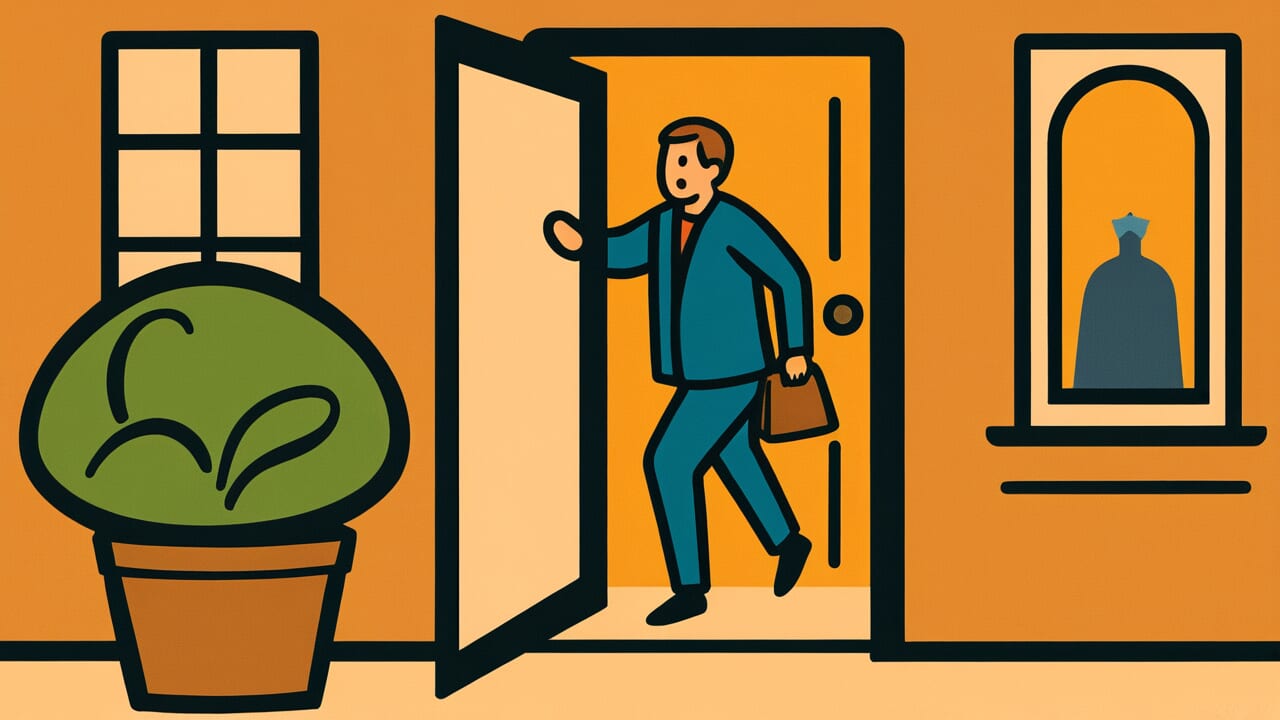How to Read “Good news does not leave the gate”
Kichiji mon wo idezu
Meaning of “Good news does not leave the gate”
“Good news does not leave the gate” means that good things and happy events rarely spread beyond the home. Bad things and scandals, however, become known far and wide in no time.
This proverb describes how information spreads in human society. It especially talks about how reputations and rumors travel.
People mainly use this saying when a bad reputation develops or when a scandal spreads. If you say “This is exactly ‘Good news does not leave the gate,'” you express frustration about how the world works.
Nobody talks about good things, but bad things spread immediately. The proverb also serves as a warning to be careful about your actions.
Even today, we can see this truth on social media. Bad information spreads much faster than good news. This shows that the wisdom of this proverb remains unchanged.
Origin and Etymology
The exact source of this proverb has several theories. Most likely, it comes from ancient Chinese classics.
An old expression says “Good things do not leave the gate, bad things travel a thousand miles.” The first part of this phrase probably came to Japan and took root there.
“Kichiji” means good things or happy events. “Mon wo idezu” means it does not go out through the gate.
In ancient China, the home gate was an important boundary between inside and outside. It served as a symbolic place when thinking about how information spreads.
Good news stays inside the home. Only bad news crosses the gate and spreads far away. This contrast sharply captures how information moves in human society.
Japanese texts from the Edo period contain this expression. This suggests people widely knew it by that time at least.
Bad reputations spread faster than good ones. This happens across all times and cultures. It’s a universal feature of human society.
That’s why people have passed down this proverb for so long. The structure of the words effectively expresses contrasting images. Good news quietly stays put while bad news actively spreads.
Usage Examples
- That restaurant has great food but few customers. If they had one case of food poisoning, “Good news does not leave the gate” would destroy them instantly.
- Nobody notices when I do good work steadily. But make one mistake and everyone hears about it. This is exactly “Good news does not leave the gate.”
Universal Wisdom
The truth shown by “Good news does not leave the gate” is rooted deep in human psychology. Why do we react more sensitively to bad news than good news? Why do we want to tell others about it?
This connects deeply with our survival instinct. Dangerous information and negative information can threaten our safety. Our brains evolved to process such information first and store it in memory.
Learning about someone’s failure or scandal becomes a lesson. It helps us avoid making the same mistakes. That’s why bad news travels quickly from person to person as “important information that should be shared.”
Good news, on the other hand, lacks urgency. Also, hearing about other people’s happiness sometimes triggers complex emotions like jealousy and envy.
We may not feel purely happy for them. Furthermore, spreading your own good news might seem like bragging. So people involved tend to be modest about it.
This proverb has been passed down for hundreds of years. It accurately describes an unchanging quality of human society.
Technology advances and methods of communication change. But the workings of the human heart remain the same. Our ancestors saw through this unavoidable human nature and left us this warning.
When AI Hears This
Looking at good news and bad news from the perspective of information “certainty” reveals an interesting difference. Good events are information that requires verification.
For example, when we hear “That person passed the exam,” we ask “Really?” We seek proof. We ask to see the certificate or confirm directly with the person.
In other words, good information requires active verification by the receiver. This is where its spread tends to stop.
Bad information, however, spreads without verification. The rumor “That restaurant had a food poisoning case” gets passed on before confirmation. Why? Because if it’s true, we might become victims too.
Our survival instinct commands us to “be cautious for now.” In information theory terms, bad information multiplies while remaining highly uncertain (in a high-entropy state).
Even more interesting is that this asymmetry can be explained mathematically. Assume good information has a transmission probability of 0.3 and bad information 0.8.
After passing through three people, only about 2.7% of good information remains. But 51% of bad information still remains. This exponential difference explains why good news doesn’t leave the gate.
Human society is governed by the thermodynamic laws of information.
Lessons for Today
This proverb teaches modern people to understand the nature of reputation. It shows the importance of valuing your daily actions.
No matter how many good things you do, they may rarely become widely known. But that’s exactly why you should be sincere in each action.
In the SNS era, bad information spreads faster than ever before. One mistake or careless moment can instantly become known to many people.
However, you don’t need to shrink back in fear. Rather, knowing this reality helps you become more conscious of your words and actions.
What matters is not losing sight of what’s essential by worrying too much about reputation. Even if good things don’t spread, they’re still worth continuing.
Honesty and kindness definitely reach the people around you. This happens even if many people don’t know about them.
And because you know bad things spread easily, you can also become more tolerant of other people’s failures.
This proverb teaches the importance of being aware of public opinion without being controlled by it. Living authentically and honestly is ultimately the best choice.



Comments